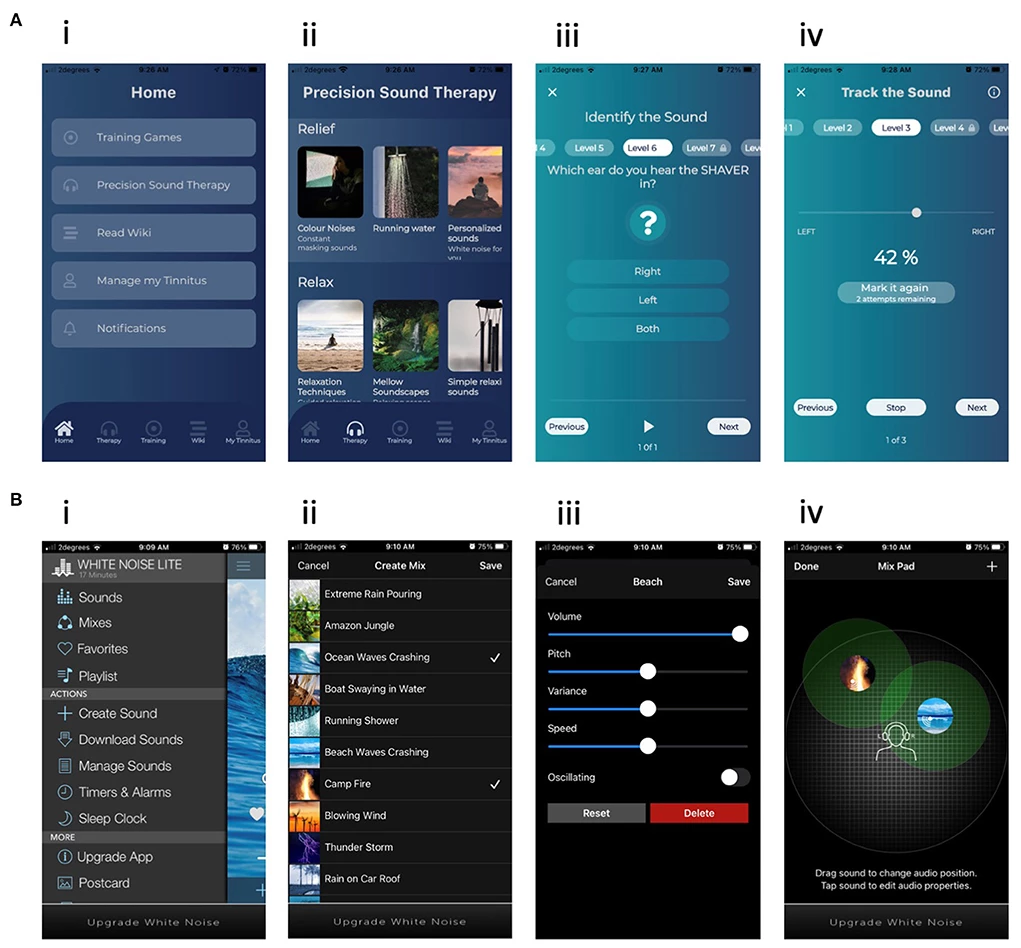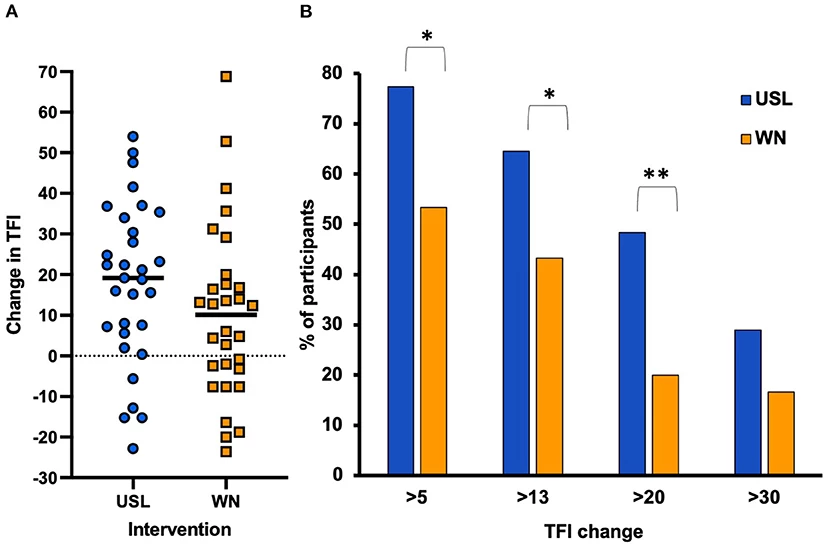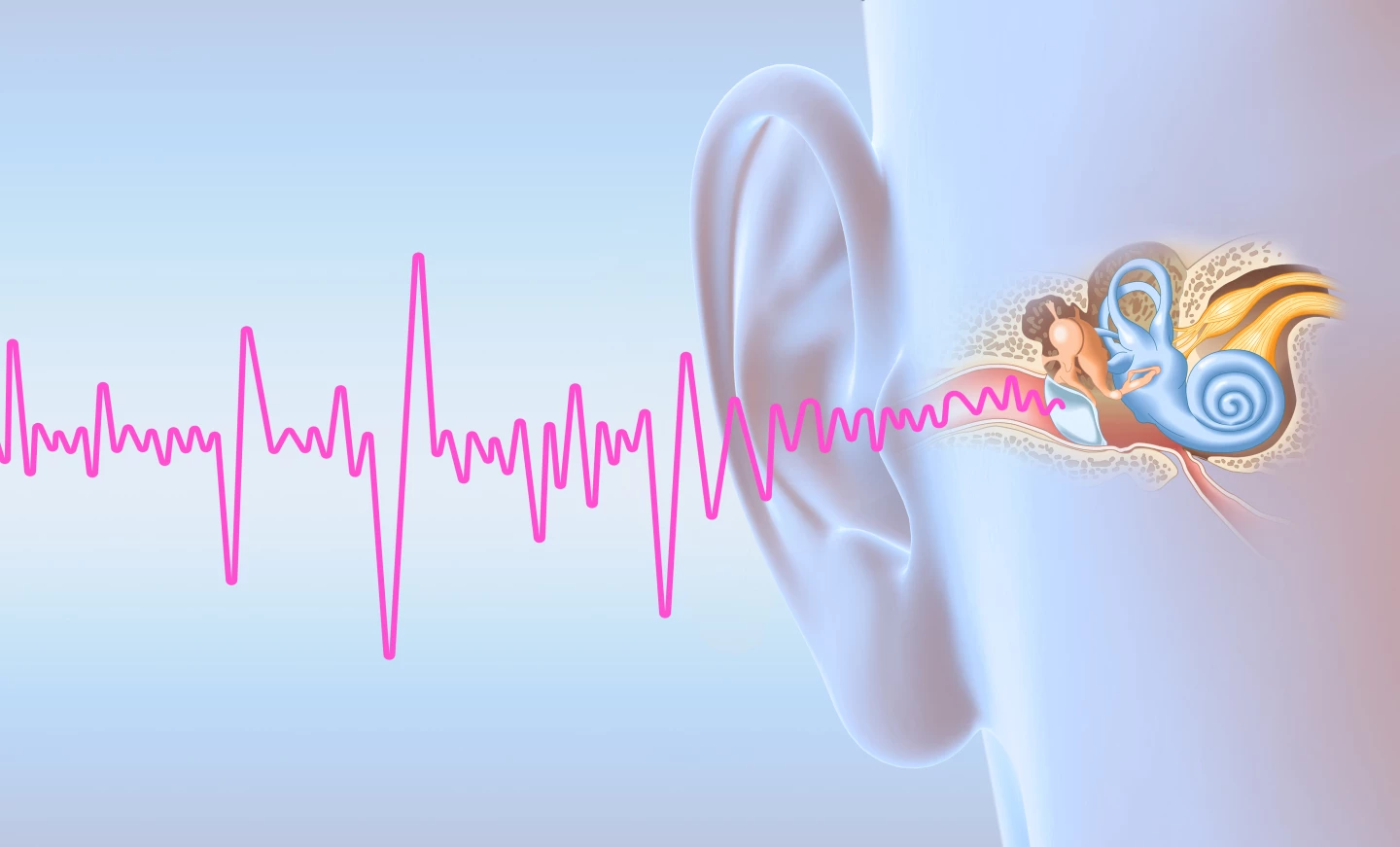The ringing, rushing sound of tinnitus is a complex condition. It's caused by a range of factors, so there's no known one-size-fits-all treatment. But researchers are reporting excellent results with a combination treatment in a smartphone app.
Some 5% of people experience tinnitus at some point in their lives – I'm one of them. It can develop after repeated exposure to loud noise; that's probably where I picked it up, thanks to a long association with drums, live music and loud motorcycles. But it can also arise thanks to wax buildup, the effect of medication, inflammation due to illness, the growth of tumors, or even circulatory system issues.
Sometimes it's barely noticeable, other times it can be impossible to ignore. This phantom noise can go away and come back, it can change from a high-pitched ring in your left ear, like the sound when an old TV is turned on with no sound, to a high-pitched hiss in your right, as if somebody's left a high-powered guitar amplifier on over your shoulder somewhere. It can make it hard to sleep, intruding upon the silence of the night, or it can flare up and make it hard to hear conversations. This is because, whatever the initial cause of tinnitus, the symptom itself is generated by the brain. It can cause stress and anxiety, and it can worsen in response to them in a vicious cycle.
There have been many treatments proposed, and some have shown promise in certain types of tinnitus patients, but a team of researchers at the University of Auckland has found it's getting strong results with a smartphone app that takes a kitchen-sink approach, combining a number of different treatments in one.
The "digital polytherapeutic" combined "goal-based counseling with personalized passive and active game-based sound therapy." It was personalized for each subject after an assessment by an audiologist, who tailored the digital tools in the app to the user's own experience of tinnitus. The Auckland team tested its app against a popular passive white-noise sound therapy app called White Noise Lite.

The primary measurement of effectiveness was the Tinnitus Functional Index, a standard scale used to quantify a person's experience of tinnitus, in which a change of 13 points is regarded as a clinically meaningful difference.
Thirty one chronic sufferers of moderate to severe tinnitus used the polytherapeutic app for 12 weeks, and 30 used the white noise app. The group using the polytherapeutic reported an average improvement of 16.36 points after six weeks, and 17.83 points after 12 weeks, with some 55% of participants experiencing a clinically meaningful improvement after six weeks, and 65% at 12 weeks.
These results were significantly better than the white noise app, although that also made a difference for some users. The average improvement for white noise users was 10.77 points at six weeks, 10.12 at 12 weeks, with 33% of this group experiencing clinically meaningful improvements at six weeks, and 43% at 12 weeks.

"This is more significant than some of our earlier work and is likely to have a direct impact on future treatment of tinnitus,” says Associate Professor in Audiology Grant Searchfield, lead author of a paper published in Frontiers in Neurology. "Earlier trials have found white noise, goal-based counseling, goal-oriented games and other technology-based therapies are effective for some people some of the time. This is quicker and more effective, taking 12 weeks rather than 12 months for more individuals to gain some control. What this therapy does is essentially rewire the brain in a way that de-emphasizes the sound of the tinnitus to a background noise that has no meaning or relevance to the listener."
We contacted Dr. Caitlin Barr, CEO of Soundfair Australia, a hearing equality organization that also runs Tinnitus Australia, a non-profit focused just on tinnitus, for an independent opinion on this study and the polytherapeutic's potential to make a genuine change for the average tinnitus sufferer.
"Tinnitus is a symptom," says Dr. Barr. "It's like a sore elbow, it can be caused by many different things. So the same treatment won't work for all those causes. There's people whose tinnitus is psychological, they can experience it as their body's way of flagging stress, or they've allocated a trauma response to the presence of that sound. The treatment, therefore, is more successful if it's more psychological, and based on cognitive behavioral therapy, getting a person to kind of step back from what they're experiencing and encourage their brain to attribute no feelings to the experience instead of negative feelings. It's relatively new, but there's lots of evidence around CBT being applied in the tinnitus space with success.
"But if it's more a physiological cause," she continues, "a sudden hearing loss, for example, where the brain is trying to recalibrate the way it's interpreting sound, then sound therapies are likely to be a more successful treatment modality. But we can't always understand the causes clearly, there's so many gaps in our knowledge about tinnitus, so it's very difficult for researchers and sufferers alike to find a panacea. That's what's exciting about this research; a combination approach means that you're more likely to help more people.
"It's a very small study," says Dr. Barr, "so obviously, they've got a lot more work to do. But it's a promising initial finding. The other digital-based options I've seen take a stronger psychological or sound therapy bent – this is the first one I've seen that combines them quite neatly. Professor Grant Searchfield is highly regarded around the world in the tinnitus space, he's absolutely an international expert, so there should be some confidence alongside that."

But, adds Dr. Barr, whatever the apparent effectiveness of app-based therapies, it's critical that tinnitus sufferers take their symptoms to a specialist with specific knowledge in this field before embarking on any kind of therapy.
"The self-help idea, I think, is problematic for tinnitus," she says. "There are medical causes, like a tumor growth, for example, on the auditory nerves. You need someone that can triage these things and tell you if you need medical attention. Go to an audiologist, that would be my first suggestion – but going to someone with a specific interest or expertise in tinnitus is even better. There are tinnitus organisations in many countries, and that's where a group like Tinnitus Australia or the American Tinnitus Association can help, we keep a register of specialists who know more about tinnitus than your average audiologist."
The Auckland team is working on attaining regulatory approval for the polytherapeutic app, and hope to have it clinically available within six months or so. They're looking to commercialize it under the business name True Silence Therapeutics.
"The key message for tinnitus sufferers," says Dr. Barr, "is that there's hope. You don't have to spend a lot of money, there are low-cost and accessible options that can do something for you. They might not fix it entirely, but they might. As you say, some people in the control group saw improvements."
The study is open access in the journal Frontiers in Neurology.
Source: University of Auckland






